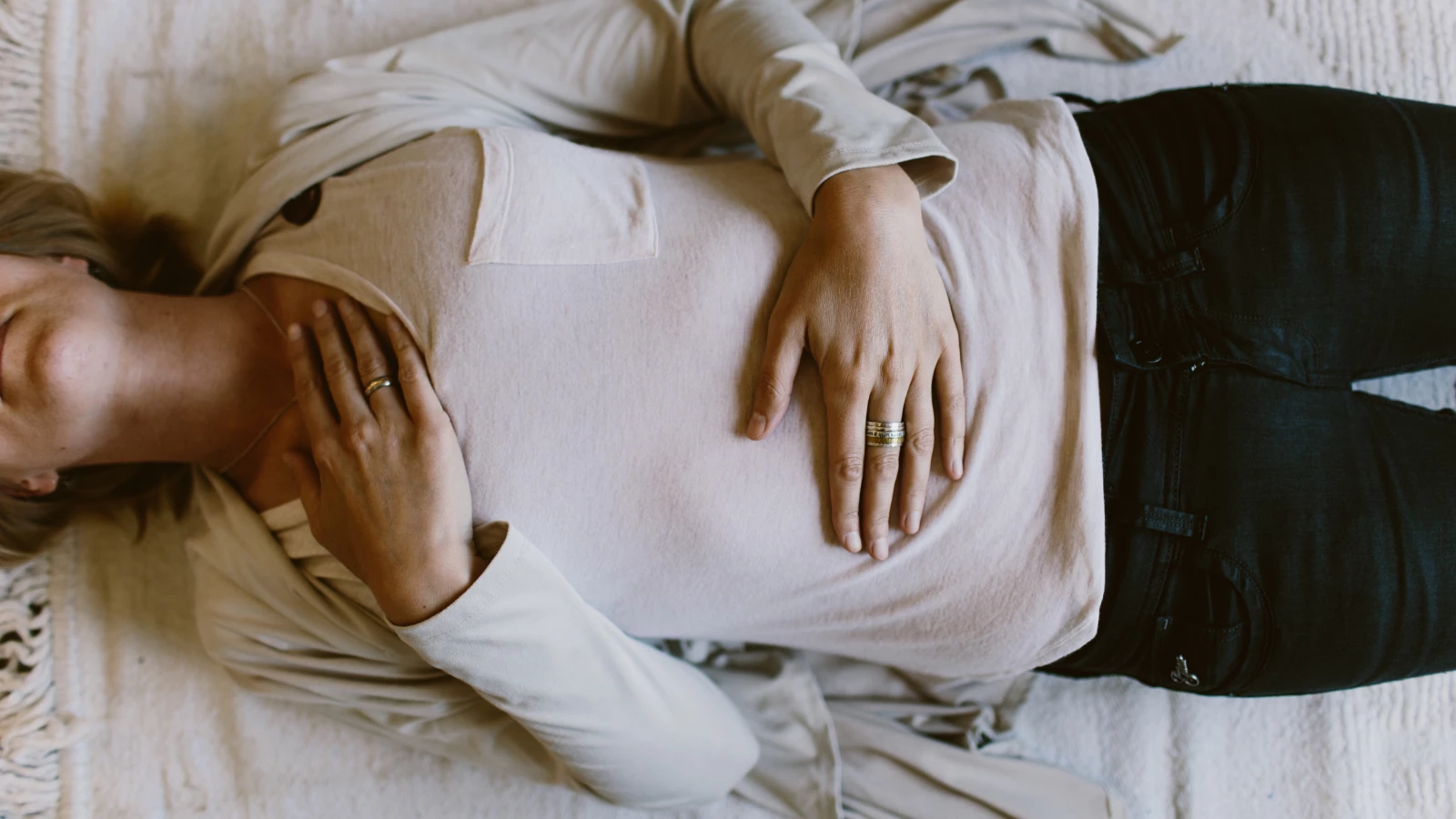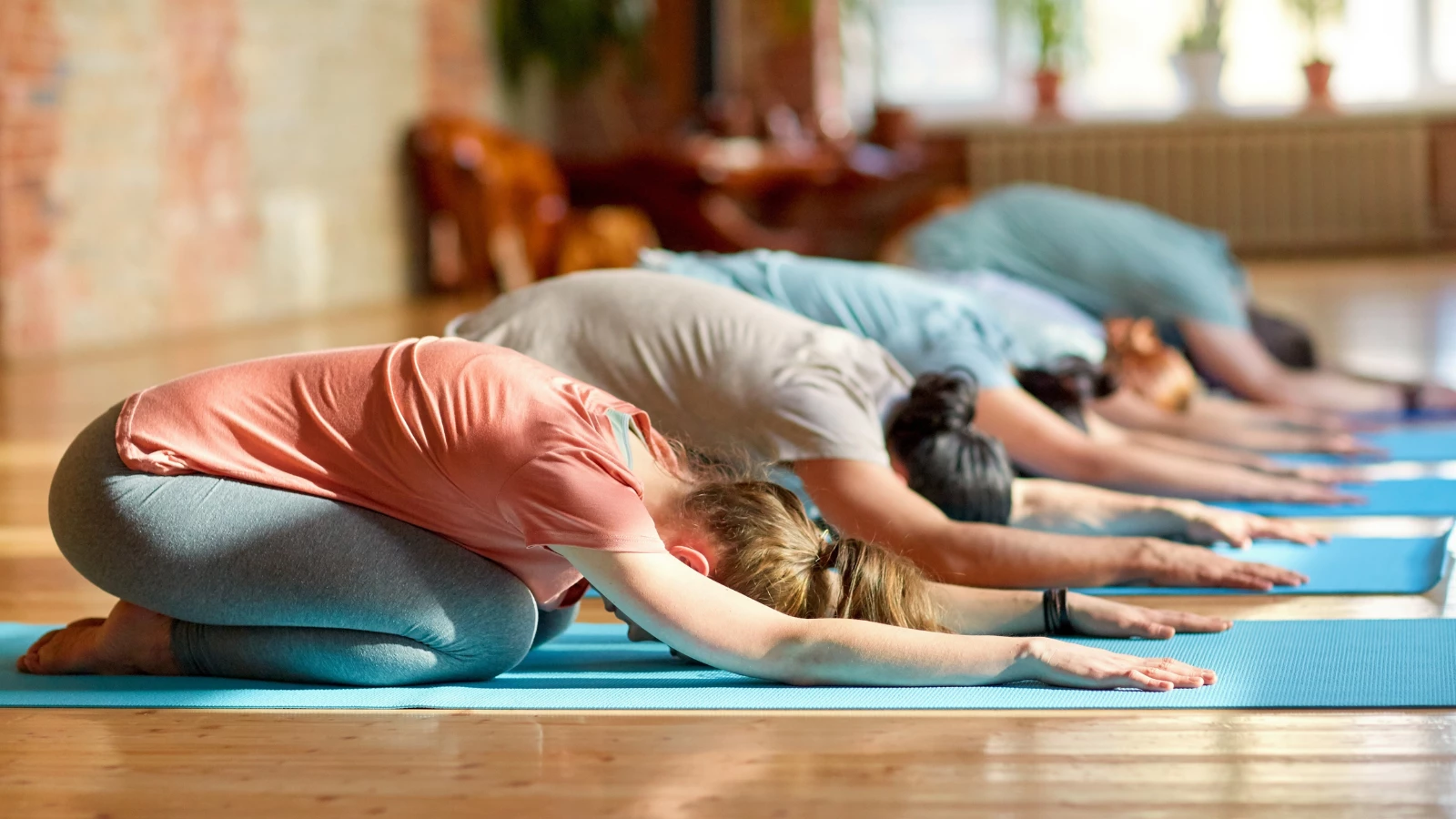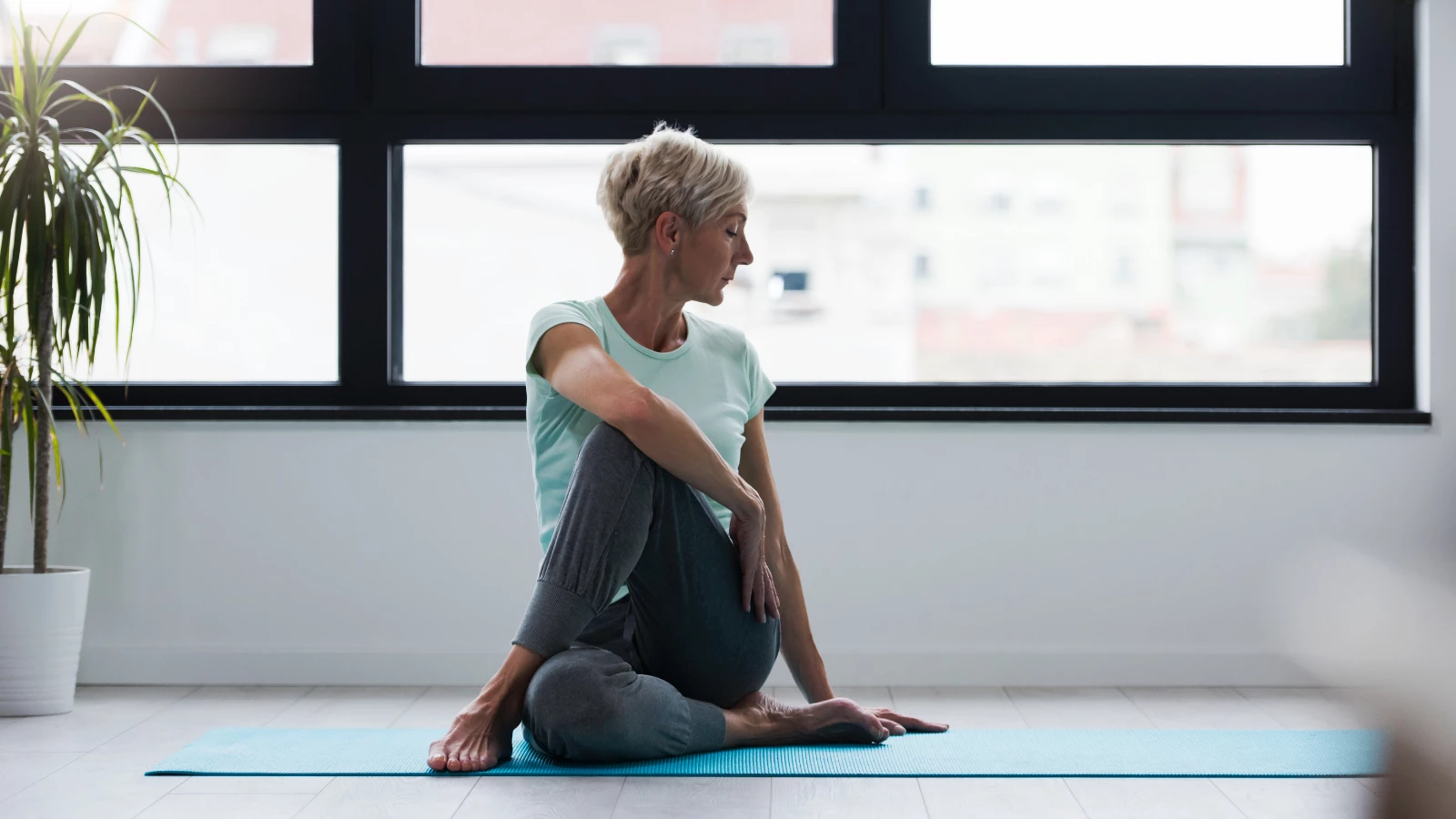The Power of Sleep Part 2

In The Power of Sleep: Part 1, I discussed the detrimental effects of sleeping less than eight hours each night. Given the average person is now sleeping a mere 6.8 hours, this information is important to know. However, what then?
In this article, I share a range of practical, natural methods to support a good night’s sleep, including diet and lifestyle, supportive therapies, herbs, essential oils, and flower essences.
Triggers for Tossing and Turning
1. Eating Late at Night
Ideally, we should avoid eating a meal or snacking for three hours prior to bedtime. If you’re truly hungry, eat a piece of fruit as this will move through the digestive process quickly.
2. Screen Time
The television, computer, and mobile phone should be turned off at least two hours before bedtime. I offer some wonderful suggestions below for what to do instead. I also recommend turning off the modem, not only so that you aren’t tempted to have one last peek at your Instagram (which can turn into an hour of mindless scrolling) but also to eliminate electric and magnetic field pollution while you sleep.
3. Stimulants and Alcohol
Alcohol in the evening is another common culprit when it comes to sleeplessness, as is coffee and other stimulants in the afternoon. Some people must eliminate stimulants completely. There are many alternatives, and I’ve provided some suggestions below.
4. Artificial Light
The light bulb is an amazing invention, and certainly changed the way we live, but artificial light at night confuses our body’s circadian rhythms. These rhythms play a vital role in cognition, mental health, metabolism, and many other body functions. If we spend our evenings lit up by artificial light, our bodies don’t recognize that it is time to wind down and sleep.
So, having turned off the modem, the television, the mobile phone, and the lights…and put aside that drink, what does one do?

How to Sleep Better
This is where the magic sets in. Historically, people used to talk, read, sit by the fire or meditate, and these are all excellent ways to support a gentle wind down from the day, but here are some other suggestions that will help to send you off on a nourishing night’s sleep.
Add Nutrients to Your Diet
The nervous system requires certain minerals and vitamins to support healthy functioning and a good night’s sleep, the most important being calcium, magnesium, melatonin (hormone and antioxidant), potassium, several B vitamins, D, E, and iron.
- Raw Sesame Milk: Rich in nourishing calcium, magnesium, iron, potassium, phosphorus, B vitamins, and vitamin E, sesame milk is a wonderful sleep aid that’s nourishing to the nervous system.
- Spirulina: Rich in essential amino acids, one teaspoon a day easily provides the B vitamins required for a good night’s sleep.
- Magnesium Rich Foods: These include dark, leafy greens; soaked and rinsed almonds and cashews (which can be blended with water to make a delicious alternative to milk); many vegetables, such as broccoli, green beans, and cabbage; and fruits such as avocado, banana, figs, and raw cacao.
- Melatonin Rich Foods: These include bananas, pineapples, oranges, and tomatoes, Natural whole oats are another good source. Bananas are rich in potassium too and contain the amino acid L-tryptophan, which is converted to 5-HTP in the brain. The 5-HTP, in turn, is converted to serotonin (a relaxing neurotransmitter) and melatonin. Tart cherry juice is another excellent source of melatonin.

Helpful Herbs
There are several herbs that support a good night’s sleep, and these are more effective when you are nourishing your nervous system. Note: When using herbs, if you are taking medication, or are pregnant or nursing, always consult your healthcare professional and/or a qualified herbalist to ensure that there aren’t any contraindications.
Alongside support for the nervous system through diet and lifestyle, the following individual herbs offer excellent superior nutrient and phytochemicals to support a good night’s sleep.
- Herbs High in Iron: There are many herbs that are high in bioavailable iron, and these can be taken either as a tea or in capsules. Yellow dock, a non-constipating source of iron, supports the digestive tract and liver and promotes beautiful skin (not recommended when pregnant or nursing). Red raspberry leaf, dandelion leaves, and nettle are other great sources of iron.
- Valerian: Valerian is a well-known herb that, depending on the underlying cause of sleeplessness, can be a great sleep aid. It provides quality nutrients for the nervous system, so its effects are cumulative. It can be taken in capsules, or as a tea, an hour or so before bed to promote sleep. It can also be taken in small doses of one gram daily for regular nourishment. Valerian is also available as an essential oil.
- Lady’s Slipper: This is my favorite herb to support a good night’s sleep. I also use it for airline travel, along with essential oils and hydration, to minimize jet lag. Note: Lady’s slipper is an endangered plant species, so it is important to only purchase from ethical courses that cultivate the herb specifically for the consumer. Do not purchase “wildcrafted” lady’s slipper!
- Calming Herbal Teas: Chamomile and passionfruit tea are both recognized for their calming effects and are gentle sleep aids.
- Essential Oils: There are numerous essential oils that are used as sleep aids, and to calm and relax the nervous system. Some well-known ones are lavender, patchouli, German or Roman chamomile, valerian, ylang-ylang, bergamot, vetiver, and sandalwood. As essential oils have many properties, it is good to research each one and then choose based on the combination of benefits that best fit your needs from a holistic perspective. Another option is to buy an essential oil blend that is prepared to support sleep.
- Flower Essences: Flower essences can be superb support for calming the mind so that you can have a restful sleep. One of the best is white chestnut, for those whose thoughts circulate like a broken record, making it difficult to truly relax. If anxiety is an issue, there are several essences that may be helpful, including impatiens, cherry plum, mimulus, and aspen.
Flower essences must be chosen individually, as individual symptoms must be matched to the correct remedy. If unsure which is best for you, then Rescue Remedy is an excellent choice for calming and relaxing a state of anxiety prior to bedtime.

Supportive Therapies for Sound Sleep
- Light: Vitamin D, a nutrient the body requires for restful sleep, is produced in the body naturally when we are exposed to the sun. During a long dark winter, the sun may be hard to come by. Spending some time with a full spectrum light on winter mornings, will not only help with regulating your energy levels during the day, but it will also support a good night’s sleep at night. If you live in the far north, or far south, when the nights get short, make sure that your windows are blacked out when it comes to bedtime so that the light doesn’t keep you awake.
- Lobelia Bath or Foot Bath: Lobelia is an herb that is regulated in the UK and is currently banned for internal consumption. However, it is still readily available for external use, and there is nothing like a hot lobelia bath to gently unwind you for a good night’s sleep. Use 1/4 to 1/2 cup of powdered lobelia (if powdered it will easily rinse down the drain), and you can also add your favorite essential oils.
- If you don’t have a bath available, then a foot bath with 1/4 cup lobelia will achieve the same results. Soak for 20 minutes.
- Epsom Salts Bath: An Epsom salts bath provides magnesium to release tension from muscles and relax the nervous system. Follow this link to read an article that I wrote about the importance of magnesium and its sources. Warm baths alone are a great sleep aid, but the addition of Epsom salts or Lobelia significantly increases the beneficial effects.
- Castor Oil Pack: This classic naturopathic treatment is invaluable for releasing stress and anxiety, soothing the digestive system, and activating the parasympathetic nervous system, thus promoting a night of deep and restful sleep.
How to Make a Castor Oil Pack
Here’s what you need:
- Pure organic castor oil. (Note: if purchased in bulk, it is far less expensive than buying in the health food store, so don’t be put off by the crazy prices of a 150ml bottle. I purchase it by the liter, or more.)
- A piece of unbleached cotton approximately the size of your abdomen. A thin hand towel will also work well.
- A larger towel to wrap around the trunk of your body
- Cellophane wrap to hold it all together
- A prepared hot water bottle (or two) or a moist heat heating pad
Instructions:
- Lay the larger towel down on a counter, table, or cookie sheet. Lay the unbleached cotton on top of this. Pour a thin layer of castor oil on the unbleached cotton layer. You can spread this with a spoon or knife to even it out.
- This oil layer is going to go directly against your skin across the entire abdomen. Castor oil can be nigh on impossible to wash out, so be prepared by wearing an old t-shirt or another garment that you don’t mind sacrificing for your self-care.
- Prepare a cozy place for you to sit and read, draw, or enjoy the view while doing your castor oil pack. You can also do this in bed, but if doing this, only use hot water bottles, not a heating pad.
- Once ready, gently lift the larger towel with the unbleached cotton soaked with castor oil up to your abdomen, with the oil against your skin, then wrap the remaining towel completely around the trunk of your body. It’s a little fiddly the first time, but worth the effort. Now wrap the cellophane around your abdomen to hold the castor oil pack in place.
- Make your way to your cozy seat, place the hot water bottles or heating pad on your belly, and relax. I generally do this treatment for an hour, or I just fall asleep with it on and take it off when I wake up. This is one of the most relaxing treatments I have ever experienced.
- Once complete, you can roll up the castor oil-soaked cotton layer and put it in the fridge to repeat the treatment the following day. Just add a little more oil and you are good to go. The cotton layer can be used up to three days in a row prior to washing.

How to Calm Your Nervous System with Restorative Yoga
Practicing Restorative Yoga before bedtime can help your nervous system shift into its parasympathetic (rest-and-digest) side. Here are some tips:
- Practice relaxing poses such as Legs-Up-the-Wall Pose (Viparita Karani) or Reclined Bound Angle Pose (Supta Baddha Konasana). There are many others, of course. Make sure that whatever you choose to practice requires little to no effort.
- Set up so that you are comfortable enough to stay awhile. This means gathering plenty of props, such as a bolster, blocks, and blankets so that your body can be fully supported.
- Spend 5 to 20 minutes in each pose. As long as you feel comfortable in your pose, feel free to stay as long as you like. The longer you stay in a Restorative pose, the more your body-mind can relax.
- Take a few slow, relaxed breaths through your nostrils once you have situated yourself onto your props. Make sure that deep breathing doesn’t reach the point of strain. After a few slow, deliberate breaths, relax and allow your body to breathe naturally, again, through your nostrils.
- Make sure to practice Relaxation Pose (Savasana). Even though you’ve been practicing Restorative Yoga, your body and mind will benefit from a generous Savasana.
This is not an all-inclusive list, but these are some enjoyable and accessible options to consider. There are many other natural options that can support a good night’s sleep, from using blackout shades on bedroom windows in summer months and exercising in the earlier part of the day, to having a comfortable mattress suited to your body type and weight, and creating a peaceful environment in your bedroom.
Enjoy experimenting. I wish you all a nourishing, rejuvenating night’s sleep!
*Advice is for information only and should not replace medical care. Please consult a doctor or healthcare professional before trying any remedies.
Reprinted with permission from Bonny Casel & herenowhealing.com
 Bonny Casel ND, MAMH, MBSLM, FBRI is the founder and director of the School of Natural Medicine UK, course creator of Lifestyle Medicine for Self Care, and founding director of Council for Self-Care. She is also a training provider for NHS hospital staff, guest lecturer, and speaks internationally with a focus on holistic pro-health care.
Bonny Casel ND, MAMH, MBSLM, FBRI is the founder and director of the School of Natural Medicine UK, course creator of Lifestyle Medicine for Self Care, and founding director of Council for Self-Care. She is also a training provider for NHS hospital staff, guest lecturer, and speaks internationally with a focus on holistic pro-health care.
Bonny began her teaching career in 1988 and has studied with many of the leading pioneers of natural medicine of the last century, including Dr. Bernard Jensen, Dr. John Christopher, Dr. Farida Sharan, Dorothy Hall, and Denny Johnson, as well as scientists Bruce Lipton and Nassim Haramein. She has authored several accredited courses, including the comprehensive Healing Diets Nutritional Consultant and Quantum Botanicals Advanced.
Dedicated to educating, empowering, and inspiring people to achieve independent health and quality of life, Bonny is also committed to lifelong continuing education, experiential self-care, and to contribute what she can to make the world a better place. Please visit www.herenowhealing.com and www.lifestyle-medicine.com to find out more.



